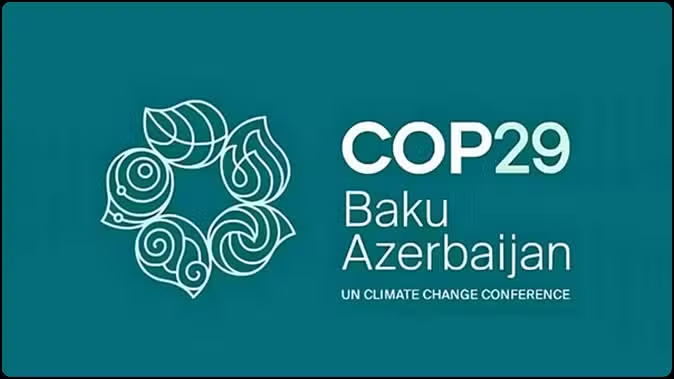India in COP29: ‘Unilateral action in the name of climate change is discriminatory’

New Delhi| Unilateral actions in the name of climate change are “discriminatory, harm multilateral cooperation” and are against the principles of the UN Climate Change Convention. India said this on Friday. Intervening in the presidential consultations on ‘unilateral measures’ at COP29 held in Baku, India said that this was a matter of global concern, which needed urgent consideration, to ensure that the paths of development of developing countries were not obstructed.
The G-77, the largest group representing more than 130 countries at the UN climate talks, and other groups of developing countries, including like-minded developing countries, also registered their strong opposition to the issue. However, developed countries, especially the EU, argued that the United Nations Framework Convention on Climate Change (UNFCCC) is not the right forum to discuss the issue, as the issue is already being considered by the WTO.
India noted that restrictive unilateral measures force developing and low-income countries to bear the costs of transition to low carbon economies, undermining the climate finance commitments of developed countries that have historically benefited from industrialization and that have contributed most to greenhouse gas emissions. India said that any unilateral measure in the name of action to prevent climate change is discriminatory towards developing countries and harmful to multilateral cooperation. They contravene the principles of equality and the CBDR-RC and UNFCCC provisions”
India further noted that unilateral trade measures discriminate against countries seeking to industrialize through export-led development by increasing the cost of exports. It said that if the goal is to reduce global carbon emissions, climate policies should focus on offering concessional finance and building the capacity of countries to address both mitigation and adaptation.
India noted that trade measures related to climate change should be assessed for their potential impact on equitable and equitable transitions in the context of efforts for sustainable development and poverty eradication. It noted that any trade-related climate policy should consider its impact on equitable and appropriate change, sustainable development and poverty eradication.
The initial plenary session of COP29 on Monday was significantly delayed, as developed and developing countries debated whether to include “unilateral trade measures” such as the EU’s Carbon Border Adjustment Mechanism (CBAM) on the agenda. China presented a proposal to the UN climate body last month on behalf of the BASIC group of countries, requesting that the issue of unilateral trade measures be addressed at this year’s COP.
CBAM is a proposed tax by the EU on energy-intensive products imported from countries like India and China, such as iron, steel, cement, fertilizers and aluminium. This tax is based on carbon emissions generated during the production of these goods. Both the United Kingdom and the United States are at various stages of implementing their versions of this mechanism.
The EU had previously argued that this mechanism provides a level playing field for domestically manufactured goods, which must comply with stringent environmental standards, and will help prevent emissions from imports. Finance Minister Nirmala Sitharaman last month termed CBAM as “unilateral and arbitrary” and said such measures could harm India’s industries and upset the balance in international trade.
According to the Centre for Science and Environment (CSE), a Delhi-based think tank, CBAM will levy an additional 25 per cent tax on carbon-intensive goods exported from India to the EU. This tax will be 0.05 percent of India’s GDP.










